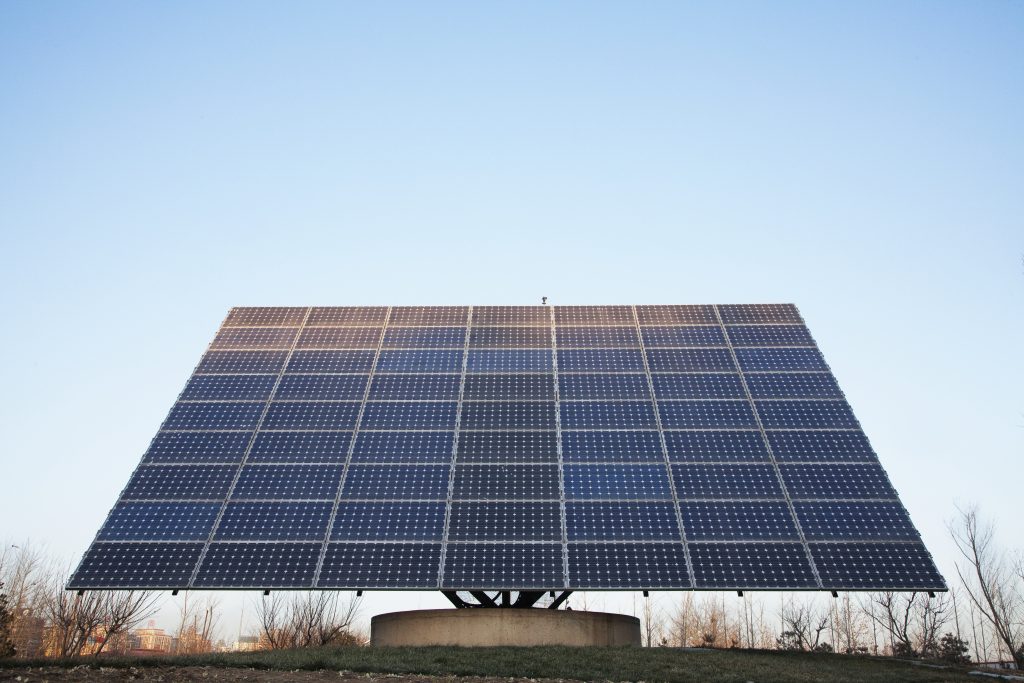Written By: David Cosseboom | Updated On: April 2nd, 2025
Solar panels are a fantastic way to generate clean, renewable energy and cut down on fossil fuel use. While large-scale solar farms are usually handled by governments or utility companies, most people recognize solar panels from their use on homes and businesses. For commercial setups, open, sunny areas work best, while rooftops are the go-to spot for residential installations.
- Plans starting at $30/month
- Free modem and anti-virus software
- No data caps
- Speeds up to 1 Gbps
Once your solar panels are up and running, they can power just about everything in your home—charging your devices, lighting up your home, running appliances, heating and cooling your home, and more. It’s a smart way to lower your energy bills and do something great for the planet.
How Solar Panels Work

Solar panels work by converting sunlight into electricity through a process called the photovoltaic effect. Each panel is made up of many photovoltaic (PV) cells, usually constructed from materials like silicon. When sunlight hits these cells, it excites electrons, causing them to flow and create an electric current. This direct current (DC) electricity is then sent to an inverter, which converts it into alternating current (AC) electricity—the type used in homes and businesses.
The electricity generated by solar panels can be used immediately, stored in batteries for later use, or fed back into the power grid, depending on the system setup. Modern solar panels are highly efficient and designed to capture as much energy as possible, even on cloudy days. This renewable energy source not only reduces reliance on fossil fuels but also helps lower electricity bills, making it an increasingly popular choice for homeowners and businesses alike.
How Much Do Solar Panels Cost?
The cost of solar panels can vary widely depending on many factors like the size of the system, the type and quality of panels, installation complexity, and your location. On average, a residential solar panel system in the U.S. costs between $20,000 and $25,000 before any incentives or rebates. This typically includes the panels themselves, inverters, mounting equipment, and installation. High-quality systems or larger installations may cost more upfront but often provide better long-term savings.
Fortunately, many governments and utilities offer financial incentives, such as tax credits, rebates, or net metering programs, which can significantly reduce the initial investment. For example, the federal solar tax credit in the U.S. currently allows homeowners to deduct a percentage of their system costs from their taxes. Additionally, financing options like solar loans or leases can make the transition to solar more affordable by spreading out costs over time. While the upfront cost may seem steep, the long-term energy savings and potential increases in property value make solar panels a smart investment for many homeowners.
Pros & Cons of Solar Energy
Pros of Solar Energy
- Renewable and Sustainable: Solar energy is a clean, renewable resource that will never run out as long as the sun shines.
- Reduces Energy Bills: By generating your own electricity, you can significantly lower or even eliminate your energy bills.
- Environmentally Friendly: Solar power reduces greenhouse gas emissions and reliance on fossil fuels, contributing to a healthier planet.
- Low Maintenance Costs: Solar panels are durable and require minimal maintenance, most systems will last 20-30 years, maybe more.
- Increases Property Value: Homes with solar panel installations often sell faster and at a higher price due to their energy-saving benefits.
- Government Incentives: Many regions offer tax credits, rebates, or net metering programs to make solar more affordable.
Cons of Solar Energy
- High Initial Costs: The upfront costs of purchasing and installing solar panels can be a barrier for many homeowners.
- Weather-Dependent: Solar panels generate less energy on cloudy days or in areas with limited sunlight which can affect efficiency.
- Energy Storage Can Be Costly: Adding batteries to store solar power for use at night or during outages increases costs significantly.
- Space Requirements: For large-scale energy needs, a significant amount of roof or land space is required. Some homes simply don’t have the space needed.
- Inconsistent Incentives: Government incentives and rebates vary by location and may change over time, affecting affordability. Make sure to check current incentives and rebates before moving forward to understand how much you will save.
How Much Money Can I Save On My Utility Bills By Using Solar?
Installing solar panels can lead to a significant savings on your utility bills by reducing or even eliminating your reliance on outside energy sources. The amount you can save depends on factors like the size of your solar system, your energy usage, and local electricity rates. On average, homeowners with solar panels can save hundreds to thousands of dollars each year and savings will increase over time as electricity rates rise. Additionally, many regions offer net metering programs, allowing you to sell excess solar energy back to the grid for credits, further offsetting costs. Over the lifetime of a solar panel system, the total savings should easily outweigh the initial investment, making it a financially savvy choice for reducing energy expenses and your carbon footprint at the same time.
FAQs About Solar Energy
How do solar panels work?
How much do solar panels cost, and what are the available incentives?
How much can I save on my electricity bill with solar panels?
Do solar panels work during cloudy days or at night?
What maintenance do solar panels require?
How long do solar panels last?
Can I go completely off-grid with solar panels?
Will solar panels increase my home’s value?
Read More About Solar
About the Author
David has been an integral part of some of the biggest utility sites on the internet, including InMyArea.com, HighSpeedInternet.com, BroadbandNow.com, and U.S. News. He brings over 15 years of experience writing about, compiling and analyzing utility data.

